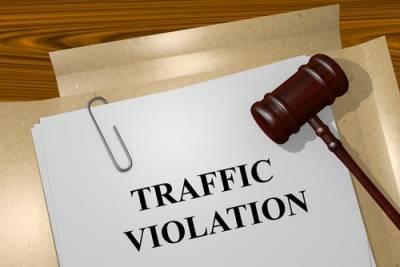Recent Blog Posts
Handling False Accusations of Domestic Violence in Illinois
 Overall, the broadening of domestic violence laws and resources has helped victims throughout the U.S. However, that does not mean that there are not people who make false accusations of abuse. If someone falsely accuses you of domestic violence, you should take the possible conviction seriously and develop an aggressive defense with a trustworthy domestic violence attorney.
Overall, the broadening of domestic violence laws and resources has helped victims throughout the U.S. However, that does not mean that there are not people who make false accusations of abuse. If someone falsely accuses you of domestic violence, you should take the possible conviction seriously and develop an aggressive defense with a trustworthy domestic violence attorney.
Although domestic violence usually implies an abusive relationship between spouses or people in an intimate relationship, Illinois law expands that definition to include more potential victims. The Illinois Domestic Violence Act states that the following parties can make domestic violence claims:
- Family members related by blood
- People who are married or used to be married
- People who share or used to share a home, apartment, or other common dwelling
- People who have or allegedly have a child in common or a blood relationship through a child in common
The Complexities of Marijuana Expungements in Illinois
 At the beginning of 2020, Illinois legalized recreational marijuana for adults and vowed to expunge marijuana charges from criminal records. Not all marijuana convictions will be expunged or sealed, but you can expect the following:
At the beginning of 2020, Illinois legalized recreational marijuana for adults and vowed to expunge marijuana charges from criminal records. Not all marijuana convictions will be expunged or sealed, but you can expect the following:
- Cases involving 30 grams of cannabis or less are eligible for automatic expungement.
- People can petition to have felony charges involving 30-500 grams of cannabis expunged. These requests will depend on prosecutor approval.
- No offenses involving over 500 grams of cannabis will be expunged under the new provisions.
Unfortunately, this will not happen overnight. It is such a complex procedure that officials can only provide optimistic estimates of when they expect all eligible records to be expunged.
Complications arise when marijuana charges are connected with other felonies or misdemeanors when those convicted in the past have moved in the time since a court issued their charges, and when the paperwork involved is handled by multiple government agencies.
What Is the Traffic Violation Point System in Illinois?
 There is a wide range of traffic offenses in Illinois, and they all result in penalties of some sort. To determine how severe a punishment a particular offense warrants, the Illinois DMV uses a "point system" to grade an offense. To understand how penalties are issued for traffic offenses in Illinois, you should take a closer look at this point system. If you ever face charges for traffic offenses, seek the guidance of a skilled and reliable traffic offenses attorney.
There is a wide range of traffic offenses in Illinois, and they all result in penalties of some sort. To determine how severe a punishment a particular offense warrants, the Illinois DMV uses a "point system" to grade an offense. To understand how penalties are issued for traffic offenses in Illinois, you should take a closer look at this point system. If you ever face charges for traffic offenses, seek the guidance of a skilled and reliable traffic offenses attorney.
Illinois Traffic Offense Point System
The Secretary of State's office divides traffic offenses into three categories:
- Immediate action: This is an immediate suspension or revocation of a driver's license.
- Non-point assigned: These do not directly result in punishment but can be used with other circumstances. For example, if a driver commits a non-point assigned offense while their license is suspended, a penalty may follow.
What Are Class X Felonies in Illinois?
 Illinois law defines five categories of felonies. Each level is associated with different crimes. All the crimes at each level tend to carry equal or similar punishments. If you, a friend, or a loved one ever face charges for a crime in Illinois, it is crucial to understand the fines and penalties that are associated with the crime. Class X felonies are the most severe category of crimes in Illinois, a step below first-degree murder. A criminal defense attorney in your area can help you understand the consequences of a Class X felony. Work with an attorney you can trust to build your case and aggressively defend you in court.
Illinois law defines five categories of felonies. Each level is associated with different crimes. All the crimes at each level tend to carry equal or similar punishments. If you, a friend, or a loved one ever face charges for a crime in Illinois, it is crucial to understand the fines and penalties that are associated with the crime. Class X felonies are the most severe category of crimes in Illinois, a step below first-degree murder. A criminal defense attorney in your area can help you understand the consequences of a Class X felony. Work with an attorney you can trust to build your case and aggressively defend you in court.
Class X Felonies
Some examples of Class X felonies in Illinois include:
- Aggravated arson
- DUI (minimum of five prior convictions)
- Home invasion
- Aggravated Battery of a child
- Aggravated Battery with a firearm
- Aggravated vehicular hijacking
Plea Bargains May Keep Prison Populations High in Illinois
 When confronting felony charges, it is common for the accused to take a plea deal to diminish their sentence. Defendants might plead guilty to reduce charges for less severe offenses, dismiss additional charges if they face multiple, serve a sentence concurrently rather than consecutively, or a combination of all three. Although superficially, this appears like a good deal for someone facing a lengthy jail sentence, recent investigations suggest that the prevalence of plea deals in criminal cases maintains high prison populations across the country.
When confronting felony charges, it is common for the accused to take a plea deal to diminish their sentence. Defendants might plead guilty to reduce charges for less severe offenses, dismiss additional charges if they face multiple, serve a sentence concurrently rather than consecutively, or a combination of all three. Although superficially, this appears like a good deal for someone facing a lengthy jail sentence, recent investigations suggest that the prevalence of plea deals in criminal cases maintains high prison populations across the country.
If you or a loved one are accused of a crime and could face felony charges, speak with a criminal defense attorney as soon as you can. Finding one who will aggressively protect your rights is the key to either lowering your sentence or proving your innocence.
Plea Bargains and Mass Incarceration
Plea bargains have become an increasingly common tactic in courtrooms since 1980, which journalist and Yale Law lecturer Emily Bazelon attributes to the mandatory minimum sentence laws that legislators around the U.S. have passed since then. With mandatory minimum sentence laws, crimes are categorized by their relative severity and given a mandatory punishment (whether it be fines or jail time) that is non-negotiable and that the convicted must serve.
What Is Scott’s Law in Illinois?
 As a driver in Illinois, it never hurts to review the rules of the road. A law that people sometimes neglect or fail to adhere to because of a lack of awareness is Scott’s Law or the Move Over Law. We will explain what it is, why the rule exists, and what penalties a violation carries. If you face traffic law charges, speak with a traffic law attorney. With their help, you will protect your rights and potentially lessen or eliminate any unwarranted charges.
As a driver in Illinois, it never hurts to review the rules of the road. A law that people sometimes neglect or fail to adhere to because of a lack of awareness is Scott’s Law or the Move Over Law. We will explain what it is, why the rule exists, and what penalties a violation carries. If you face traffic law charges, speak with a traffic law attorney. With their help, you will protect your rights and potentially lessen or eliminate any unwarranted charges.
Scott’s (Move Over) Law
In 2000, a Chicago Fire Department lieutenant, Scott Gillen, was killed by a speeding, drunk driver. As a result, the Illinois legislature passed Scott’s, or the Move Over, Law. Its premise is simple: if a first-responder has their siren or hazards on, all drivers in the vicinity need to move to the opposing side of the road and slow down. A significant amount of first-responder deaths each year encouraged Governor J.B. Pritzker to pass a more robust version of Scott’s Law. The new iteration comes with more potent repercussions.
How Does Photo Enforcement for Speeding in Construction Zones Work in Illinois?
 Knowing the rules of the road in Illinois is necessary to stay safe and avoid any unwanted fines. Speed limits in construction zones are one of the basic rules that most people are aware of, but how are they enforced? If you face fines, license suspensions, or even jail time for traffic violations, do not hesitate to get the guidance of a seasoned criminal defense attorney in Illinois. Developing a strong defense when presenting your case or contesting any charges that you feel are unwarranted is easily achieved when you have a lawyer you can trust on your side.
Knowing the rules of the road in Illinois is necessary to stay safe and avoid any unwanted fines. Speed limits in construction zones are one of the basic rules that most people are aware of, but how are they enforced? If you face fines, license suspensions, or even jail time for traffic violations, do not hesitate to get the guidance of a seasoned criminal defense attorney in Illinois. Developing a strong defense when presenting your case or contesting any charges that you feel are unwarranted is easily achieved when you have a lawyer you can trust on your side.
Photo Enforcement in Kane County
Any driver who violates construction zone speed limits in Illinois can face steep fines and charges, but that is to protect both workers and all drivers. If you ever get impatient in a construction zone, remember that according to a study conducted in 2015, drivers are more likely to be victims in work zone accidents than workers. Because of this, speeding in a construction zone can lead to at least $375 fine for the first offense, a minimum of $1000 for the second, and a driver’s license suspension for up to 90 days if the second offense occurred within two years of the first.
Illinois Supreme Court Expands Possible Reasons for Warrantless DUI Testing
 Although blood testing or breathalyzer tests in traffic stops are generally acceptable under Illinois law, a recent Illinois supreme court ruling suggests that this rule is subject to a bit more interpretation. As such, it is important to remember the need for experienced and aggressive legal defense from a skilled DUI attorney. Even in cases that face charges of any kind, there might be ways to tone down any fines or sentences depending on the circumstances.
Although blood testing or breathalyzer tests in traffic stops are generally acceptable under Illinois law, a recent Illinois supreme court ruling suggests that this rule is subject to a bit more interpretation. As such, it is important to remember the need for experienced and aggressive legal defense from a skilled DUI attorney. Even in cases that face charges of any kind, there might be ways to tone down any fines or sentences depending on the circumstances.
People v. Eubanks
On December 21, 2009, Ralph Eubanks was allegedly driving a borrowed car and hit Maria Worthon and son Jeremiah. According to testimony at the time, Eubanks was driving between 80 or 90 miles per hour without his headlights. Maria died in the accident and her son suffered severe injuries. Ralph wound up with consecutive sentences that summed to 40 years. However, these charges were reached because the prosecution relied on blood and urine tests that were taken hours after the arrest without a search warrant.
What Are the Consequences of Driving Too Closely to a Cyclist in Illinois?
 Following the Illinois Rules of the Road can keep you from any fines, having your license revoked, and any further felony punishments. In doing so, you will also ensure your and others’ safety. As a driver, you have a responsibility to share the road properly with bicyclists, pedestrians, and horse-drawn vehicles. There are relatively new, specific laws that dictate how you are supposed to share the road, which we will explain in detail below. If you are ever charged with a traffic violation, defend your case and minimize any charges with the help of an experienced traffic violations attorney.
Following the Illinois Rules of the Road can keep you from any fines, having your license revoked, and any further felony punishments. In doing so, you will also ensure your and others’ safety. As a driver, you have a responsibility to share the road properly with bicyclists, pedestrians, and horse-drawn vehicles. There are relatively new, specific laws that dictate how you are supposed to share the road, which we will explain in detail below. If you are ever charged with a traffic violation, defend your case and minimize any charges with the help of an experienced traffic violations attorney.
Illinois’ New Bike Laws
New laws that took effect in 2018 state that you must leave a “safe distance, but no less than three feet” when passing a bicycle or individual on the road. To help support this safe distance, the law allows drivers to pass in no-pass zones. A very common mistake is for drivers to feel too uncomfortable with crossing over the double yellow line, and they hardly leave enough room for the cyclist who they are overtaking. However, there is a catch. Passing cyclists is only legal if the cyclist is traveling at less than half of the posted speed limit. Also, if there is just too much traffic to prevent the guarantee that you will be able to create enough space between your vehicle and the bicycle, you should not take the chance. All of these rules apply to pedestrians and horse-drawn vehicles.
Governor Signs New “Cocktails to Go” Law in Illinois
 As COVID-19 changes how we live, some laws are changing or being created so that businesses can adapt accordingly. Staying informed on these changes is important, since they will give you more options with which to safely enjoy time with family and friends during the coronavirus pandemic, and they can help keep your favorite local businesses afloat, too! A recent and drastic change in alcohol laws gives you some new freedoms as a driver. If you are wrongly accused of breaking these new laws or you are charged with having an open container of alcohol in your vehicle, it is still very important to reach out to a trusted DUI attorney to thoroughly defend your rights.
As COVID-19 changes how we live, some laws are changing or being created so that businesses can adapt accordingly. Staying informed on these changes is important, since they will give you more options with which to safely enjoy time with family and friends during the coronavirus pandemic, and they can help keep your favorite local businesses afloat, too! A recent and drastic change in alcohol laws gives you some new freedoms as a driver. If you are wrongly accused of breaking these new laws or you are charged with having an open container of alcohol in your vehicle, it is still very important to reach out to a trusted DUI attorney to thoroughly defend your rights.
The New “Cocktails to Go” Law
Up until recently, alcoholic beverages purchased at a restaurant or bar had to be consumed on the premises and nowhere else. However, as so many businesses face economic hardship due to COVID-19, the Illinois legislature is trying to make appropriate and necessary adjustments to help support the economy while keeping people safe. For that reason, you can now order ‘cocktails to go.’







